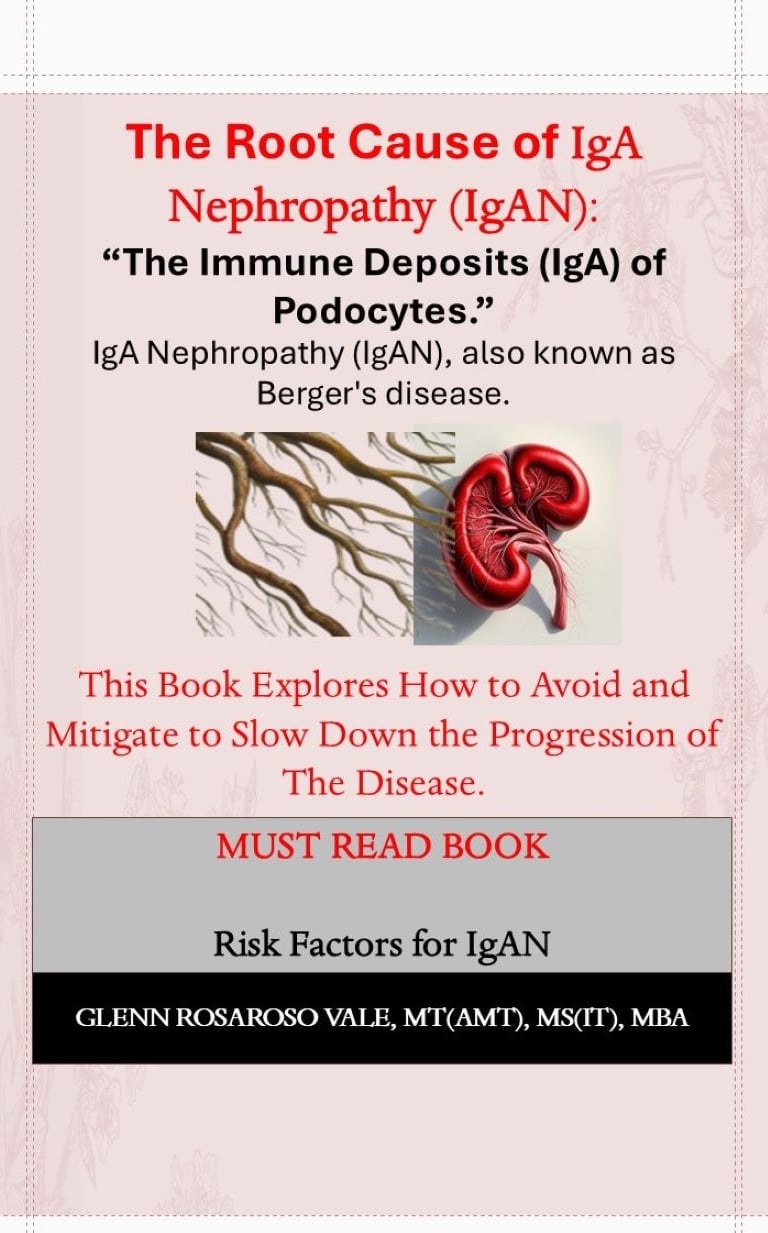"Uncover the truth behind the groundbreaking discovery of the causes of the world's biggest problems. 'The Root Causes' will change how you view the world!"
Understanding What Causes Kidney Disease: The Role of Lifestyle Choices
Introduction to Kidney Disease Kidney disease is a pressing health concern that affects millions of individuals worldwide. It can lead to severe complications, including kidney failure, if not properly managed. Understanding what causes kidney disease is essential for both prevention and treatment. One of the most significant factors influencing kidney health is lifestyle choices. Lifestyle Factors Contributing to Kidney Disease Several lifestyle factors are instrumental in the development and progression of kidney disease. Firstly, poor dietary habits can significantly impact kidney function. A diet high in sodium, refined sugars, and unhealthy fats can strain the kidneys and increase the risk of chronic conditions like hypertension and diabetes, which are major contributors to kidney disease.
DISEASES
Glenn Rosaroso Vale, BSMT, MS(IT), MBA
12/2/20243 min read


Understanding Kidney Disease: How Lifestyle Choices Impact Kidney Health
Kidney disease is a growing global health issue that affects millions of people each year. If left untreated, it can lead to severe complications, including kidney failure. One of the most effective ways to prevent or manage kidney disease is by understanding its causes and making informed lifestyle choices. Lifestyle habits play a significant role in the development and progression of kidney disease, and addressing these factors can help safeguard kidney function for years to come.
Lifestyle Factors That Contribute to Kidney Disease
Several lifestyle habits directly influence kidney health. A poor diet, insufficient hydration, lack of physical activity, and harmful substances like tobacco and alcohol can all lead to kidney damage over time. Let’s take a closer look at how these factors contribute to kidney disease.
Diet and Its Role in Kidney Health
One of the most significant lifestyle factors affecting kidney health is diet. A diet high in sodium, refined sugars, and unhealthy fats puts immense stress on the kidneys. Excessive salt intake can cause high blood pressure, a major risk factor for kidney disease. Similarly, consuming a diet rich in refined carbohydrates and unhealthy fats can lead to obesity, diabetes, and hypertension—all of which are linked to kidney damage.
Recent research by Dr. Fettke from Australia (2021) highlights the importance of controlling carbohydrate intake. He suggests that consuming more than 4 grams of carbohydrates at a time is harmful to the body. This is roughly equivalent to 3-4 teaspoons of rice or 1/5 of a typical serving of bread. Furthermore, the consumption of seed oils high in linoleic acid (Omega-6) has been identified as toxic to the body and can contribute to systemic inflammation, putting further strain on kidney function.
A balanced, kidney-friendly diet focusing on whole, unprocessed foods, such as vegetables, lean proteins, and healthy fats, can help maintain kidney function and reduce the risk of kidney disease.
The Importance of Hydration
Adequate hydration is another key factor in maintaining kidney health. The kidneys rely on sufficient fluid intake to filter waste products from the blood and excrete them through urine. Dehydration can lead to the formation of kidney stones and increase the likelihood of urinary tract infections (UTIs), both of which can damage the kidneys over time. It’s important to drink enough water throughout the day to keep the kidneys functioning properly.
Exercise and Kidney Health
A sedentary lifestyle is another significant risk factor for kidney disease. Lack of physical activity is strongly linked to obesity, diabetes, and hypertension—all of which are major contributors to kidney dysfunction. Regular exercise helps maintain a healthy weight, reduces blood pressure, and improves overall cardiovascular health, which in turn supports kidney function.
Even simple activities like walking, swimming, or cycling can have a profound impact on your kidney health. Incorporating regular exercise into your daily routine not only reduces the risk of chronic illnesses but also improves overall well-being.
The Impact of Tobacco on Kidney Function
Tobacco use is a major contributor to kidney disease. Smoking reduces blood flow and impairs the delivery of oxygen and nutrients to vital organs, including the kidneys. Long-term smoking has been linked to a higher risk of kidney disease, particularly because it also negatively affects cardiovascular health. The combination of poor blood circulation and the toxins found in cigarettes accelerates kidney damage, increasing the likelihood of kidney failure over time.
If you're a smoker, quitting is one of the most beneficial steps you can take to protect your kidneys and improve overall health.
Alcohol and Kidney Health
Excessive alcohol consumption can also have harmful effects on kidney function. Chronic heavy drinking can elevate blood pressure, impair liver function, and cause dehydration—factors that can ultimately damage the kidneys. Additionally, alcohol is a diuretic, which can lead to fluid imbalances in the body and place added stress on the kidneys.
While moderate alcohol consumption is generally considered safe for most people, excessive drinking should be avoided to prevent its negative impact on kidney health.
Medications and Kidney Damage
Certain medications, particularly non-steroidal anti-inflammatory drugs (NSAIDs), can pose risks to kidney function. Overuse of NSAIDs can lead to kidney injury, especially if combined with other risk factors like dehydration or pre-existing kidney conditions. Always consult with a healthcare provider before taking medications, especially if you have concerns about their impact on your kidneys.
Conclusion: Making Healthier Choices for Better Kidney Health
Understanding the factors that contribute to kidney disease is essential for prevention and management. Lifestyle choices such as diet, hydration, physical activity, smoking, and alcohol consumption all play a crucial role in kidney health. By making conscious, informed decisions and adopting healthier habits, individuals can reduce their risk of kidney disease and promote long-term kidney function.
The key to preventing kidney disease lies in proactive care—maintaining a balanced diet, staying hydrated, exercising regularly, avoiding smoking, and limiting alcohol consumption. By embracing these healthy habits, you can not only protect your kidneys but also enhance your overall well-being and quality of life.
Staying vigilant and making small, positive changes to your lifestyle can have a significant impact on your kidney health, helping to ensure a healthier future.
Health
Understanding illness to empower your well-being journey.
Wellness
Knowledge
info@rootcauseprevention.com
903-268-6664
© 2024. All rights reserved.
grfv@sbcgloal.net



